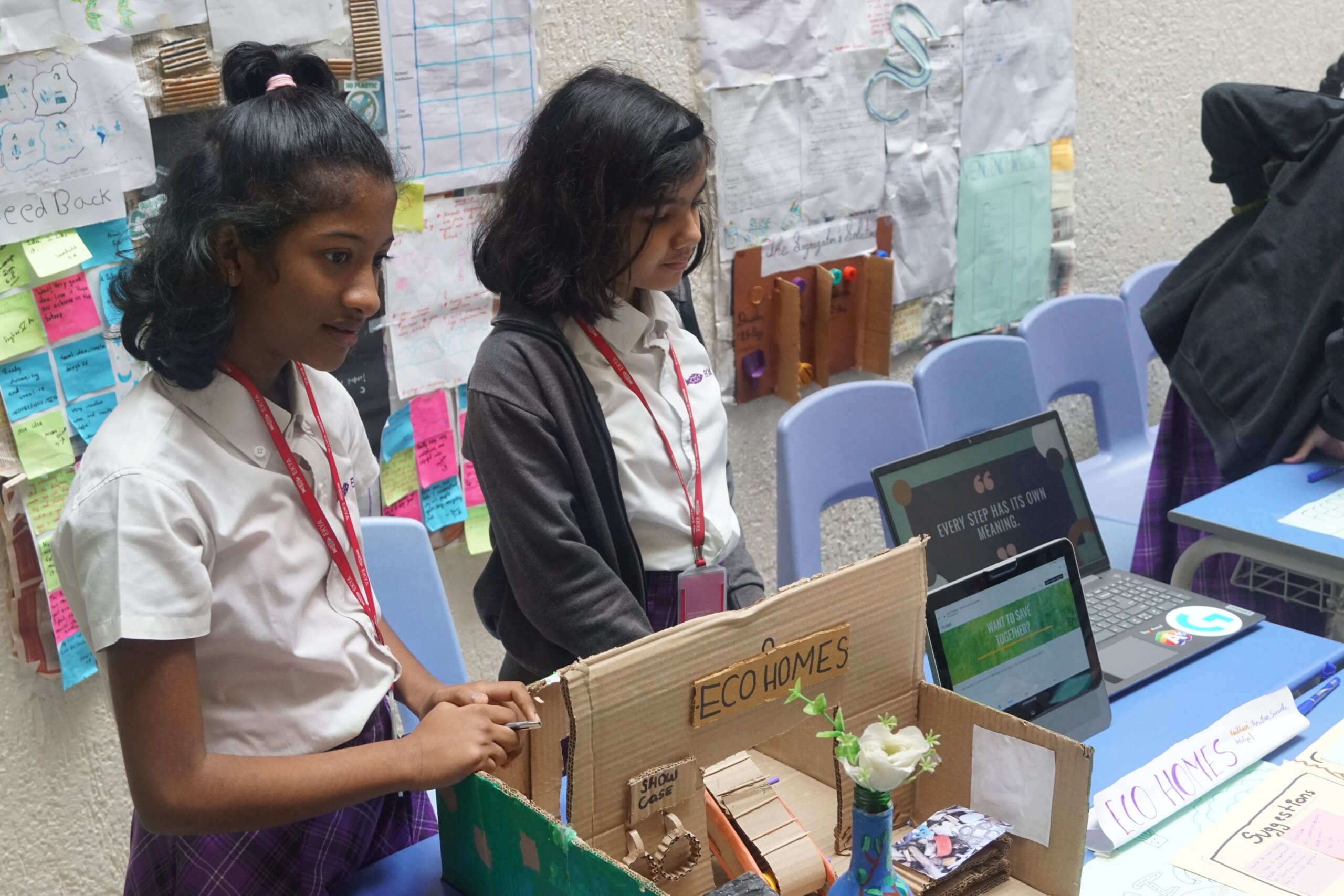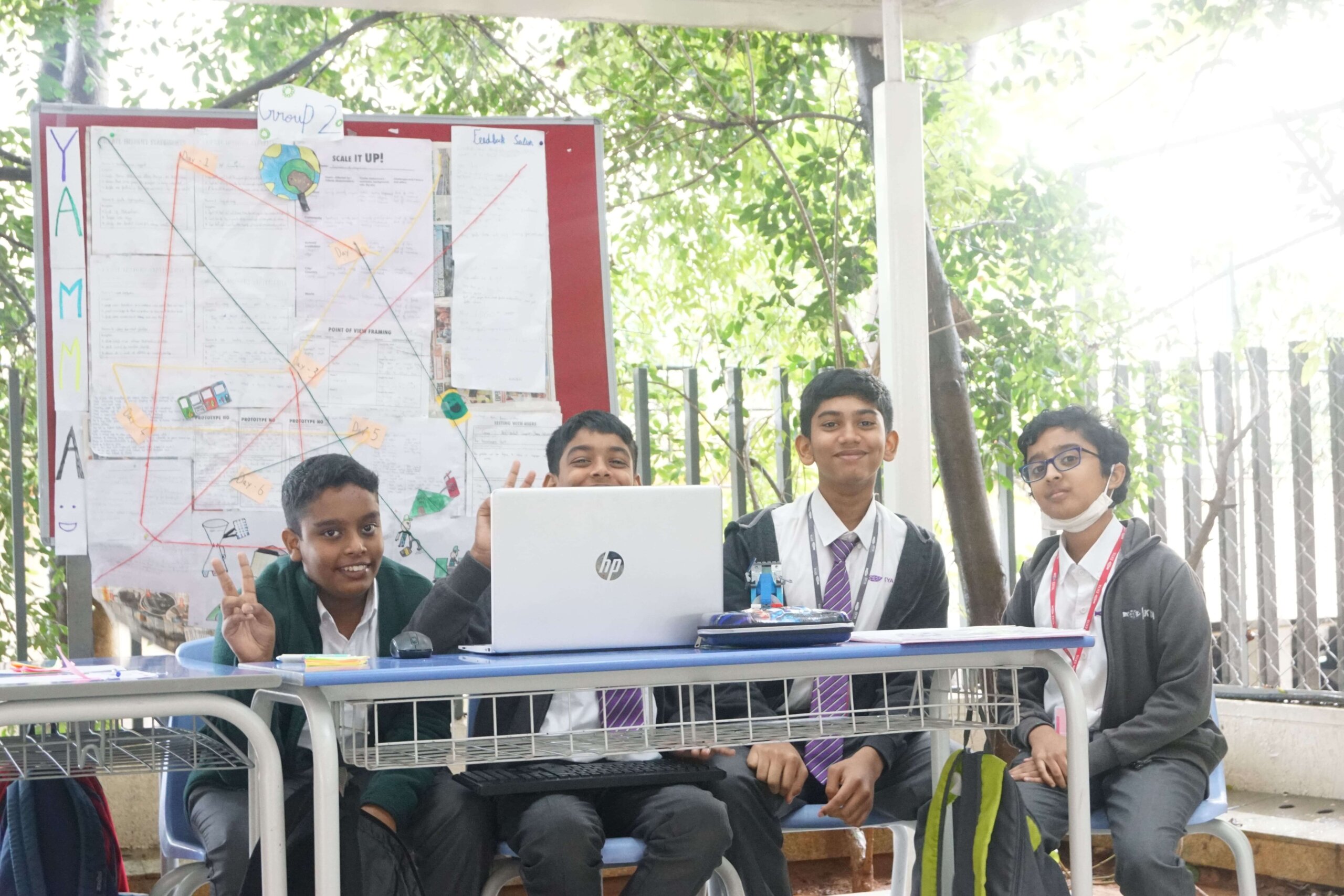EKYA/10 April 2025 Posted by : EKYA Schools
Navigating the Digital World: Teaching Students to Be Responsible Digital Citizens
The first step to being a good citizen starts at home, but what about being a digital citizen? Our children are growing up in a world where their first “playground” is often online—watching videos, sharing ideas, and exploring new topics. But just like in the real world, the digital one comes with its own set of rules, risks, and responsibilities.
Have you ever thought about how your child interacts with the digital world? Are they kind? Are they cautious? Are they aware of the footprints they leave behind with every click, post, and search?
At Ekya Schools, one of the top schools in Bangalore, we believe that thriving in today’s data-driven world involves more than just knowing how to use technology. It’s about empowering students to use it responsibly and ethically. This is where digital citizenship comes in—a skill that’s as essential as math or science in shaping their future.

What Is Digital Citizenship?
There is more to digital citizenship than simply being able to use a smartphone and browsing the internet. It’s about understanding how to use technology ethically, safely, and responsibly. A good digital citizen is someone who can:
- Communicate respectfully in online spaces.
- Protect their personal information and understand the importance of online privacy.
- Spot fake news and avoid spreading misinformation.
- Use technology for positive contributions, such as learning, creating, and helping others.
Simply put, digital citizenship teaches children to become thoughtful, kind, and ethical participants in the digital world.
Why Is Digital Citizenship Important for Students?
In the digital age, children are exposed to information—and misinformation—at an unprecedented rate. While they may be tech-savvy, they often lack the critical thinking skills needed to safely navigate the internet. Here’s why digital citizenship is so important:
1. Ensures Online Safety
The internet is a vast ocean of information, but it’s also a space where cyberbullying, scams, and other risks exist. Teaching students about online safety helps them avoid harmful situations and protect themselves from digital threats.
2. Promotes Ethical Use of Technology
Digital citizenship fosters responsibility and ethics in online spaces. It teaches students to think about their actions, avoid plagiarism, respect intellectual property, and engage positively with others online.
3. Builds Critical Thinking Skills
From identifying fake news to evaluating the credibility of a source, digital citizenship empowers students to think critically. This is a vital skill in today’s world, where misinformation spreads faster than ever.
4. Prepares Students for the Future
In a world where technology dominates workplaces, colleges, and social interactions, being a responsible digital citizen is essential for success. Children who learn to use technology wisely are better prepared to thrive in the digital economy.
How Can Schools In Bangalore Empower Students as Digital Citizens?
In today’s interconnected world, schools play a pivotal role in shaping responsible and ethical digital citizens. By integrating digital literacy into the curriculum, educators can ensure that students are equipped to navigate the digital landscape with confidence and care. Here are some key ways schools can foster digital citizenship:

1. Interactive Digital Literacy Programs
Digital literacy programs should go beyond theoretical knowledge and focus on interactive, hands-on learning. These programs can teach students to understand and apply the principles of digital citizenship, such as respecting online privacy, practicing ethical behavior on social media, and understanding the consequences of their digital actions. Engaging activities like role-playing scenarios or creating digital projects can make these lessons more impactful.
2. Cybersecurity Workshops and Awareness Campaigns
Cybersecurity is a critical component of digital citizenship. Schools can organise workshops and awareness campaigns to educate students about online risks, such as phishing scams, password security, and data protection. These initiatives empower students to recognise potential threats and take proactive steps to protect themselves and their digital identities.
3. Encouraging Positive Online Engagement
Technology is a powerful tool for collaboration, creativity, and learning. Schools can encourage students to use technology positively by involving them in collaborative online projects, digital storytelling, and group discussions. These activities teach students how to communicate respectfully, share ideas constructively, and contribute meaningfully to online communities.
4. Teaching Media Literacy
In an age of information overload, media literacy is essential. Schools can help students develop critical thinking skills by teaching them how to identify credible sources, evaluate the accuracy of online content, and spot misinformation. This not only helps students become informed digital citizens but also equips them to make thoughtful decisions in their personal and academic lives.
5. Collaboration Between Educators and Parents

Digital citizenship is a shared responsibility that extends beyond the classroom. Schools can work closely with parents to ensure that students practice responsible digital behavior at home as well. Hosting parent-teacher workshops on topics like online safety, screen time management, and cyberbullying can create a unified approach to fostering ethical digital habits.
Tips for Parents: Encouraging Digital Citizenship at Home
Parents play an essential role in shaping their child’s digital habits. Here are some simple tips to encourage digital citizenship at home:
- Set clear boundaries: Establish rules about screen time and appropriate online behavior.
- Model good behavior: Children often mimic their parents, so demonstrate responsible digital habits.
- Talk about online safety: Discuss the importance of privacy and how to handle cyberbullying.
- Encourage open communication: Let your children know they can talk to you about any online experiences, positive or negative.
- Teach critical thinking: Help your child question the credibility of online content and avoid spreading misinformation.
By combining efforts at home and in school, we can raise children who are not only tech-savvy but also ethical, responsible, and kind digital citizens.
Why Choose Ekya Schools for Your Child’s Education?
At Ekya Schools, our commitment to holistic education goes beyond academics. As one of the top schools in Bangalore, we are dedicated to preparing students for the challenges of the 21st century. Our focus on digital citizenship ensures that students are not just consumers of technology but responsible contributors to the digital world.
Here’s why parents trust us:
- A future-ready curriculum that integrates digital literacy and ethical technology use.
- Experienced educators who guide students through their digital learning journey.
- A safe and inclusive environment that fosters respect, collaboration, and innovation.
Join us at Ekya Schools, where we empower students to be confident, capable, and compassionate digital citizens.
Shaping the Future of Responsible Digital Citizens
As technology continues to evolve, the importance of digital citizenship cannot be overstated. Teaching children to navigate the digital world responsibly is not just a skill—it’s a necessity. By helping students develop critical thinking, ethical behavior, and online safety skills, we prepare them to thrive in a connected and digital future.
At Ekya Schools, one of the top schools in Bangalore, we are proud to lead the way in fostering responsible and ethical digital citizens. Together, let’s empower the next generation to use technology as a force for good while staying safe and informed in the digital world.